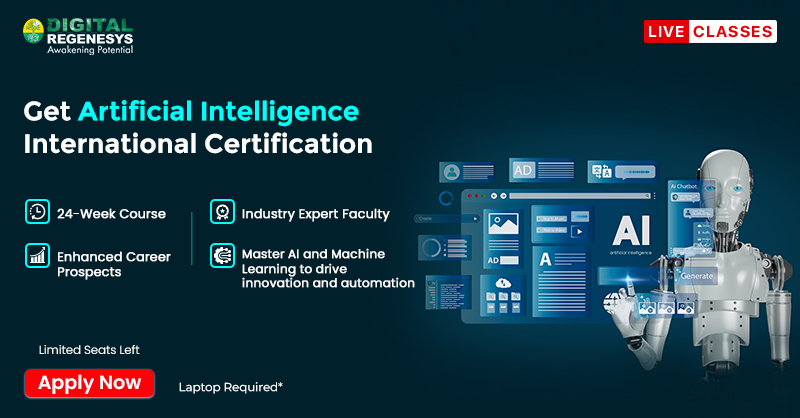Essential AI Skills for Career Success in 2026

Businesses face unprecedented challenges and opportunities in an AI-driven world. Professionals equipped with the right AI skills can navigate complexity, solve problems efficiently, and leverage technology to deliver impactful results.
As AI continues to influence industries, understanding how to work alongside AI systems is no longer optional. It’s a key differentiator that separates professionals who innovate from those who merely keep pace.
Mastering AI skills, including data literacy, prompt engineering, machine learning basics, and ethical decision-making, empowers individuals to contribute meaningfully, lead projects, and make informed decisions.
This article explores how embracing these skills can unlock new career opportunities, drive business value, and secure professional growth.
Understanding AI in the Workplace
AI is now embedded in everyday business operations, powering tools that enhance productivity, streamline processes, and generate actionable insights. Professionals encounter AI in data analysis, marketing automation, customer service, and even decision-making support.
Understanding AI’s role allows individuals to interact intelligently with these systems and leverage them to achieve better results, improve efficiency, and drive innovation.
Here are some key ways AI is applied in the modern workplace:
- Automation of routine tasks and workflows
- Data-driven decision-making for accuracy
- AI-powered tools for efficiency and productivity
- Enabling innovation and problem-solving
Read more – Role of AWS in AI/ML.

Top AI Skills for Career Success in 2026
Ever wondered what skills will set you apart in an AI-driven workplace? Professionals who master data literacy, machine learning basics, AI tools, prompt engineering, ethics, critical thinking, and communication will be better equipped to leverage AI effectively, drive innovation, and unlock new career opportunities in 2026.
Let’s explore each of these essential AI skills and see how they contribute to career success:
1. Data Literacy
Data is the foundation of AI. Professionals must be able to read, analyse, and interpret data to make informed decisions. Skills in data visualisation, basic statistics, and understanding datasets allow employees to transform raw information into actionable insights.
Data literacy enables the identification of trends, understanding of AI outputs, and informed support for strategic decisions, making it an indispensable skill for future-ready professionals.
Mastering data literacy opens the door to applying AI effectively in your work:
- Understanding datasets and metrics
- Analysing trends and patterns
- Data visualisation for insights
- Making informed, strategic decisions
2. Machine Learning Fundamentals
A basic understanding of machine learning (ML) models is essential for professionals interacting with AI. Understanding how models are trained, validated, and applied enables users to interpret results and effectively leverage AI accurately.
While deep technical expertise isn’t mandatory for all roles, awareness of ML concepts allows professionals to collaborate with technical teams, assess AI outputs critically, and contribute meaningfully to AI-driven projects.
With ML knowledge, you can better harness AI tools for real-world applications:
- Understanding supervised and unsupervised learning
- Recognising model limitations and outputs
- Collaborating effectively with technical teams
- Applying ML insights to business problems
Read about What is Artificial Intelligence in Project Management?
3. AI Tools and Platforms
Hands-on experience with AI tools and platforms is critical. Familiarity with software like Python, TensorFlow, or AI-driven analytics platforms allows professionals to execute tasks, automate processes, and analyse data efficiently. Being comfortable with AI interfaces and tools enhances productivity and empowers users to translate AI capabilities into tangible outcomes.
Knowing the tools is just the start; guiding AI effectively requires prompt engineering:
- Using AI software for practical tasks
- Automating workflows and data processing
- Enhancing analysis with AI platforms
- Translating AI outputs into actionable insights
4. Prompt Engineering & Generative AI
Prompt engineering involves crafting precise instructions that AI can understand and interpret to generate the desired outputs. With generative AI gaining traction, professionals who can design clear, context-rich prompts unlock creativity and efficiency in tasks like content creation, code generation, or data summarisation.
This skill ensures AI produces relevant, high-quality results while minimising errors, making it a critical asset for career success in AI-powered workplaces.
Here’s how prompt engineering impacts professional workflows:
- Crafting instructions for accurate AI output
- Enhancing content creation and ideation
- Reducing errors in AI-generated work
- Boosting productivity and creativity
5. AI Ethics and Responsible AI
Understanding ethical considerations is essential when working with AI. Professionals must be aware of biases, fairness, data privacy, and the responsible use of AI. Ethical awareness ensures AI outputs are reliable, unbiased, and legally compliant, which is crucial for building trust with clients and stakeholders. Incorporating ethical thinking into AI projects safeguards organisations and enhances professional credibility.
Responsible AI practices strengthen the impact of other AI skills:
- Identifying bias in AI outputs
- Ensuring data privacy and security
- Applying fairness in decision-making
- Building trust with AI-driven solutions
6. Critical Thinking & Problem Solving
AI can generate insights, but professionals must critically interpret these results. Strong problem-solving skills allow users to evaluate AI outputs, identify actionable solutions, and make informed decisions. Critical thinking ensures AI is used effectively, supporting innovation and strategic planning rather than replacing human judgment.
Combining AI insights with critical thinking enhances overall performance:
- Evaluating AI-generated recommendations
- Making strategic decisions based on data
- Identifying innovative solutions
- Balancing AI outputs with human judgment
7. Communication and Collaboration
AI skills are most effective when paired with the ability to communicate insights clearly and collaborate across teams. Professionals must translate technical outputs into understandable insights for stakeholders and work with cross-functional teams to implement AI-driven solutions. Strong communication ensures that AI’s potential is fully realised within organisations.
Effective communication amplifies the impact of all AI skills:
- Explaining AI concepts to non-technical audiences
- Collaborating with diverse teams
- Presenting data-driven insights
- Driving adoption of AI solutions
Get insights on the 8 Benefits of Machine Learning.
How to Acquire These AI Skills
Developing AI expertise involves a combination of structured learning, hands-on experience, and continuous practice. Professionals can take online courses, pursue certifications, and participate in workshops to build foundational knowledge.
Experimenting with AI tools, engaging with communities, and contributing to projects accelerates learning and builds confidence in applying skills to real-world problems.
Here’s how you can effectively acquire and strengthen these AI skills:
- Enrol in AI-focused courses and certifications
- Practice with AI tools and platforms
- Join AI forums, communities, and workshops
- Work on hands-on projects for experience
Benefits of Mastering AI Skills
Professionals who master AI skills gain a competitive edge, experience career growth, and have access to better opportunities. They can contribute to innovation, improve decision-making, and increase productivity. Organisations value employees who understand AI, making these skills essential for leadership and strategic roles in 2026 and beyond.
Mastering AI skills opens doors to a range of career benefits:
- Increased employability and job security
- Access to cutting-edge roles and projects
- Leadership opportunities in AI initiatives
- Enhanced problem-solving and innovation
Explore details on What is Data Handling and Preprocessing?

Conclusion
Building essential AI skills is critical for career success in 2026. Professionals equipped with these skills can innovate, collaborate, and lead effectively in AI-driven environments.
For those ready to gain practical experience and industry-ready skills, consider exploring the Digital Regenesys Artificial Intelligence Certificate Course. With hands-on projects, expert guidance, and a structured curriculum, this course prepares learners to harness AI effectively, enhance their career prospects, and thrive in an increasingly AI-powered workplace.
Take the lead in an AI-driven world – visit Digital Regenesys and master essential AI skills with the Artificial Intelligence Certificate Course.
Last Updated: 16 October 2025
